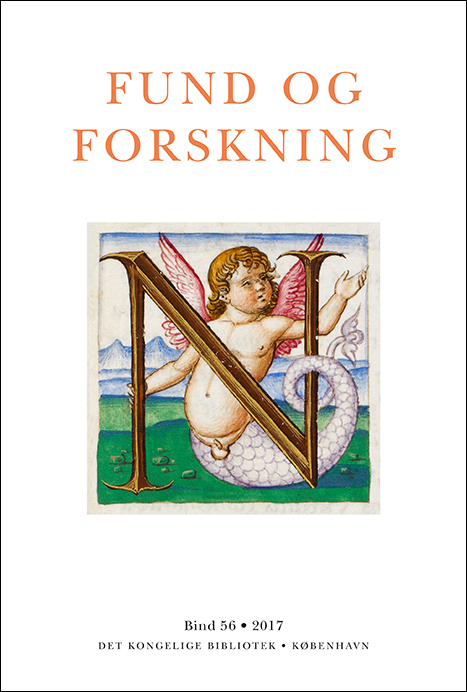“I Danmarks Interesse”. Minerydningen pa den jyske vestkyst 1945
DOI:
https://doi.org/10.7146/fof.v56i0.118933Resumé
John V. Jensen: In Denmark’s Interest … Mine clearing on Jutland’s west coast 1945
The article is about mine clearing on Jutland’s west coast in 1945. The mine clearing started shortly after the German capitulation. It was unusual because German soldiers were forced to do the work, which, with a few exceptions, was completed on 1 October 1945. The work cost the lives of around 150 German soldiers and wounded even more. In the many years that followed, the perception was that, despite the loss of German lives, the mine clearing had been achieved in a satisfactory way. This perception faced criticism in 1998 with the claim that the mine clearing was a dark chapter in Denmark’s history, and that Danish war crimes had been committed. The German Wehrmacht surrendered to the Allies in Denmark on 4 May 1945, and it was the British liberation force that gave the order for the mines to be cleared. There is evidence to suggest that the political powers in Denmark may have drawn British attention to the mines on Jutland’s west coast. At any rate, the order to clear the mines was incorporated into the terms and conditions of the capitulation. Under the British command, the mines were to be cleared by German soldiers in as short a time as possible, while the Det Danske Pionerkommando (Danish Engineer Command Battalion) was tasked with supervising the clearing work. The article shows that this German-British-Danish collaboration was far from problematic. There were conflicts from the Danish side, especially in terms of sloppiness and laziness among its own inspectors, while the Pionerkommando’s more limited collaboration with the Germans, in terms of counting and subsequent checks, was apparently less strained than one would have expected. This perception was based on the erroneous assumption that it was the Danes who were in command of the German mine clearers. It has been claimed that the mine clearing work was achieved by forced labour. The article states that this is not as clear-cut as it sometimes has been claimed. It is quite obvious that the German soldiers, who were commandeered from the marched groups immediately after the liberation of Denmark, must to a great extent have been forced because of their training. However, there were supposedly also several volunteers among the later arrivals of mine clearers, even though they were less well trained. The work in Denmark was a way of avoiding the prison camps and an alternative to working, for example, in the coal mines in Germany. One argument is that the British, and especially the Danes, had a significant interest in the Germans not getting maimed or killed in the minefields, because as long as the Germans cleared the mines, it meant that Danes did not have to do the work. It is believed that this was the harsh logic of the times. It is believed without a doubt, that the high German losses are explained by the high speed, at which the mine clearing work was carried out. It was work that had to be done, and both the British and the Danish authorities were in agreement on that. However, notwithstanding the tempo, the task’s complexity, the Germans’ work methods and relative inexperience played a role. The article questions whether there actually were any Danish war crimes. From a British (and a Danish) perspective, there were not any German prisoners of war, but military units, which had capitulated and whose labour could be exploited, for example, for mine clearing without there being any conflict with international conventions. In that sense, there were no war crimes. However, be it soldier or war prisoner, the losses remain the same.
The contemporary material paints a different and more detailed picture than has been shown up until now and shows that the history of the mine clearing is less clear-cut and more complex than supposed. The tension between Danes and Germans was nowhere near as pronounced as posterity would have it, and internal Danish factors and the relationship with the British also played a role, thereby downplaying the revenge motive, which otherwise has been used to explain the German loss of life. The Danish and German soldiers had an important common interest. This has been overlooked and undermines the explanation that there were revenge and inhumanity. This revenge motive is perhaps to be found in particular outside the ranks of the soldiers, whether Danish, German or British: for example, in the wider Danish population, who conversely had nothing to do with the mine clearing.
The mutual interest between the Germans, the British and the Danes was expressed precisely in a written statement from Pionerkommandoet to the ‘Jydsk-fynske Kommando’ (Jutland-Fyn Command) on 14 June 1945: “It is also in Denmark’s interests that the Germans clear the mines, and that we [the Danes] are not forced to do it ourselves”.


